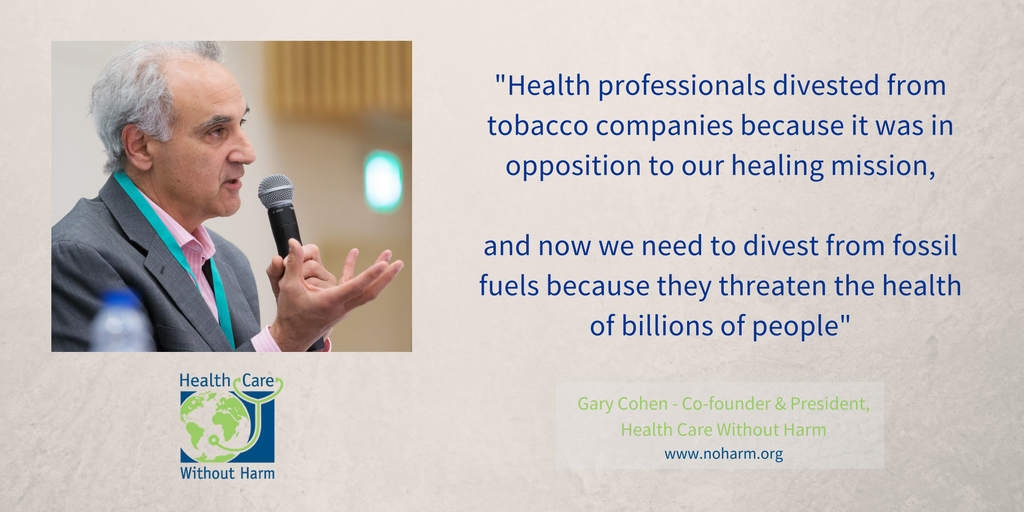During its annual assembly in Taiwan, the World Medical Association (WMA) called on health organizations to divest from fossil fuel based companies and to invest in companies that uphold environmental principles consistent with United Nations policy. Health Care Without Harm supports the WMA's call for divest and similarly urges health care organizations around the world to move towards clean energy solutions.
Given the energy intensive nature of its operations, health care has a moral responsibility to reduce its reliance on fossil fuels. By investing in clean energy, greening the supply chain, and empowering employees, the health sector can reduce the health impacts of climate change, save money on energy costs, and help accelerate the transition to a clean energy economy.
Similarly, divesting from fossil fuels is central to health care’s mission and sends a powerful message from the health sector. "Health professionals divested from tobacco companies because it was in opposition to our healing mission, and now we need to divest from fossil fuels because they threaten the health of billions of people," said Gary Cohen, president and founder of Health Care Without Harm. "We need to kick our addiction to fossil fuels in order to safeguard global health."
"The vulnerable among us, including children, older adults, people with heart or lung disease, and people living in poverty, are most at risk from [climate change]. Yet they are the people least able to adapt to the new conditions," said Dr. Dong Chun Shin, South Korean Medical Association Representative and Chair of the WMA Finance and Planning Committee. "We know that fossil fuel air pollution reduces quality of life for millions of people worldwide, causing a substantial burden of disease, economic loss, and costs to health care systems."
During its meeting, the WMA adopted a policy statement encouraging all 112 of its national medical association members to educate others on both the dangers of climate change and the health benefits of reducing greenhouse gas emissions.
